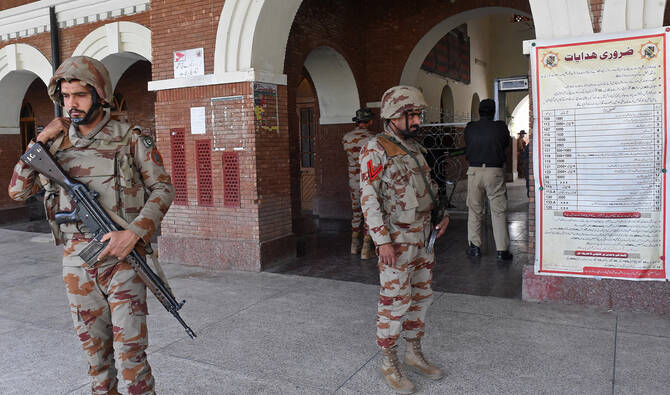ISLAMABAD: Pakistan’s security forces have killed two militants and arrested two others during an operation in the southwestern Balochistan province, the Pakistani military said on Sunday.
The intelligence-based operation was conducted in Balochistan’s Duki district on reported presence of militants, according to the Inter-Services Public Relations (ISPR), the Pakistani military’s media wing.
The militants were killed in an intense exchange of fire during the operation.
“Weapons, ammunition and explosives were also recovered from the Indian-sponsored terrorists, who remained actively involved in numerous terrorist activities in the area,” the ISPR said.
“Sanitization operation is being conducted to eliminate any other terrorist found in the area.”
Balochistan, Pakistan’s largest but most impoverished province, has been the site of a long-running insurgency that has intensified in recent months, with separatist militants attacking security forces, government officials and installations and people from other provinces who they see as “outsiders.”
Islamabad accuses India of backing the separatists in Balochistan as well as religiously motivated militant groups, like the Pakistani Taliban, in its northwestern Khyber Pakhtunkhwa (KP) province. India denies the allegations.
On Saturday, the Pakistani military said a suicide bomber rammed an explosive-laden car into a Pakistani military convoy near the Afghan border in the northwest, killing at least 13 soldiers, blaming New Delhi for the attack.
India’s ministry of external affairs said on Sunday it rejected the Pakistani military statement, seeking to blame India for Saturday’s attack in the North Waziristan district.
Pakistan and India, which often accuse each other of supporting militancy, last month traded missile, drone and artillery fire for four days over a militant attack in Indian-administered Kashmir. India accused Pakistan of backing the assault, an allegation denied by Islamabad.
















